Twitter is a way of communicating with our elected representatives. Sometimes we use it to ask questions, or challenge their views. But we we also use it to air our frustrations.
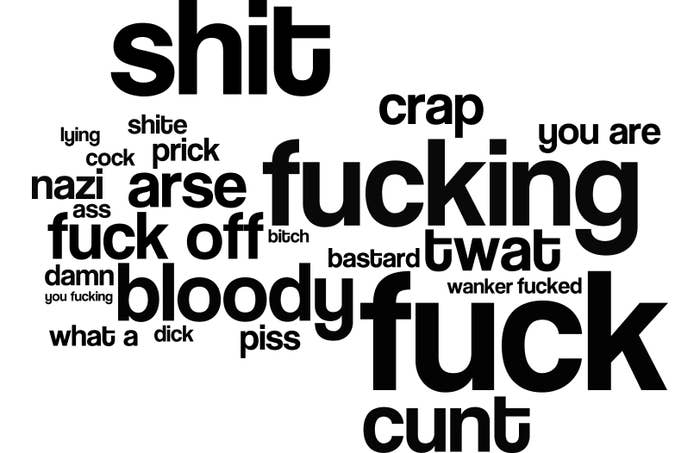
The word cloud above shows the relative popularity of the various swearwords people have directed at politicians on Twitter during the election campaign. The bigger the word, the more times it has been used.
All told, around 110,000 tweets – or roughly 1 in 50 of those directed towards politicians – have contained one or more abusive words. The most popular phrase is, simply, "fuck off". In total, it's been sent to politicians more than 3,000 times over the last 10 weeks.
The main targets for abuse are, understandably, David Cameron and Ed Miliband.
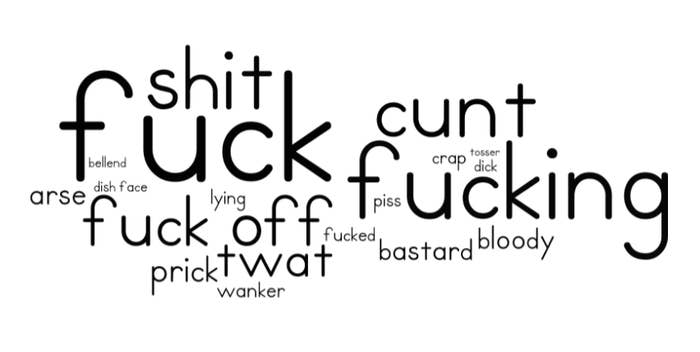
The prime minister has received around 9,000 messages containing an abusive word. The word cloud above shows Twitter's favourites. As for Ed Miliband, who's in second place, a single phrase rings out loud and clear:
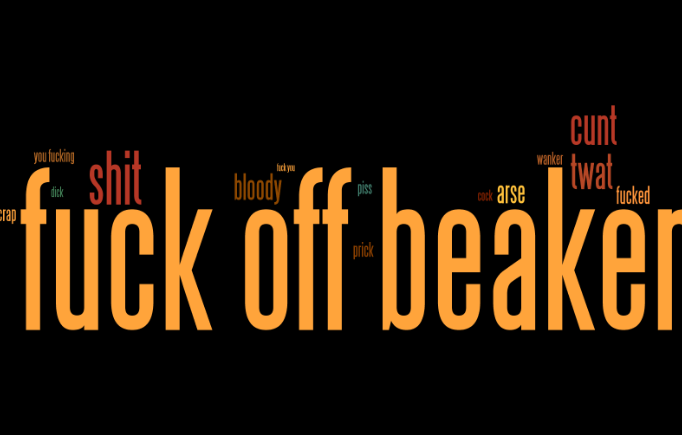
Thanks to Twitter, a thought can become a public statement in an instant. Politicians, like all of us, sometimes resort to strictly unparliamentary language.
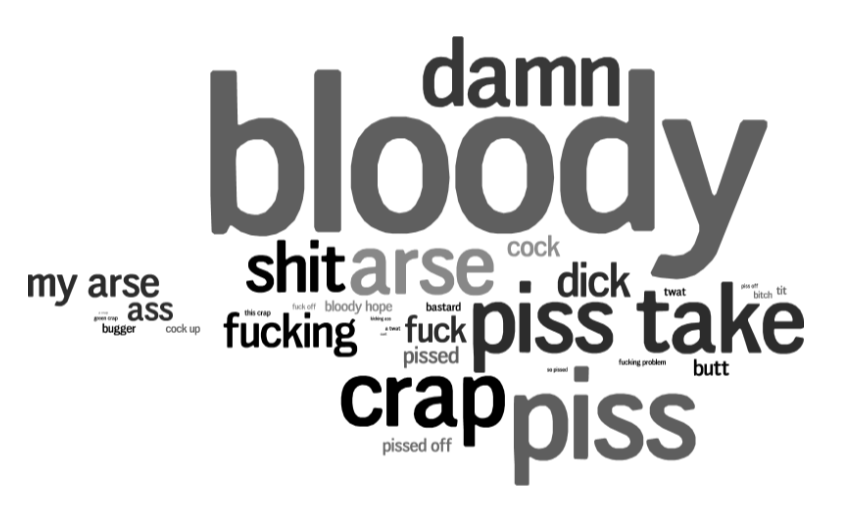
The word cloud above shows politicians' favourite swearwords on Twitter – taken from 1,300 separate examples of bad language on the campaign trail.
During this election, candidates have used it to speak in ways that they never have before – whether out of anger, desperation, or simply because they're retweeting the abuse they've been getting.
Sitting Labour candidates for parliament have sent out the greatest volume of abusive tweets, but the Conservatives aren't far behind, and the other parties have been chiming in too.
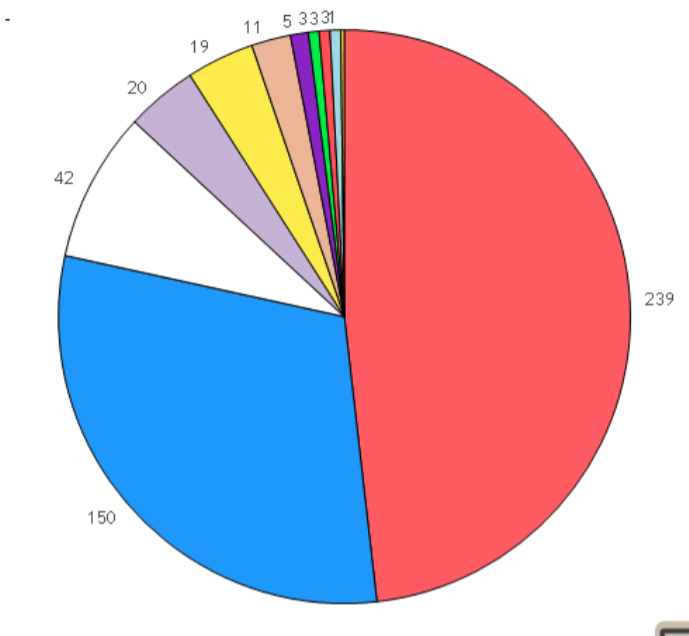
The colour code is Red = Labour, Green = Greens, Blue = Conservatives, Purple = UKIP, Yellow = Liberal Democrats, Brown = Plaid Cymru, White = Respect, and Grey = Independents.
The only party who has been completely well-behaved is the SNP: The only tweet sent from the SNP's six sitting parliamentary candidates that contains an abusive word is a single "Oh shit!..." from Pete Wishart.
Important note: This chart does slightly overstate the totals, as it catches people (for example) using abusive terms as names – e.g. innocently replying to a constituent called Dick.
Labour have been particularly prone to turning words like "Tories" and "austerity" into swearwords by pairing them with four-letter words.
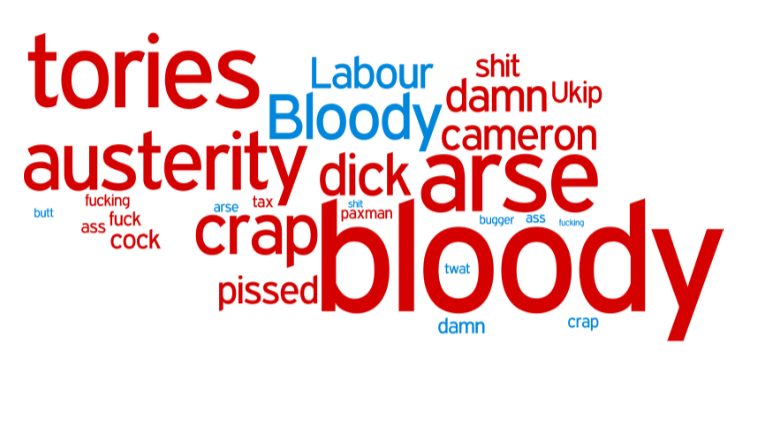
Labour's preferred epithets are in red and the Tories' in blue. Note that Ed Miliband's men are fond of "arse" when things go wrong, whereas David Cameron's prefer the more genteel "damn".
The politician who's used abusive terms in his tweets the most is George Galloway of Respect.
He's done it 30 times (accounting for Respect's strong showing in the table above), followed by Karl Turner of Labour on 23, the Tories' Michael Fabricant on 22, Labour's Jamie Reed on 18, and Labour MP turned independent Eric Joyce on 16.
Of course, that doesn't necessarily mean these politicians are swearing at people each time – they could be posting in jest, quoting others, or sharing abuse received themselves.
Sometimes, swearing plays into a politician's brand as an outspoken outsider.
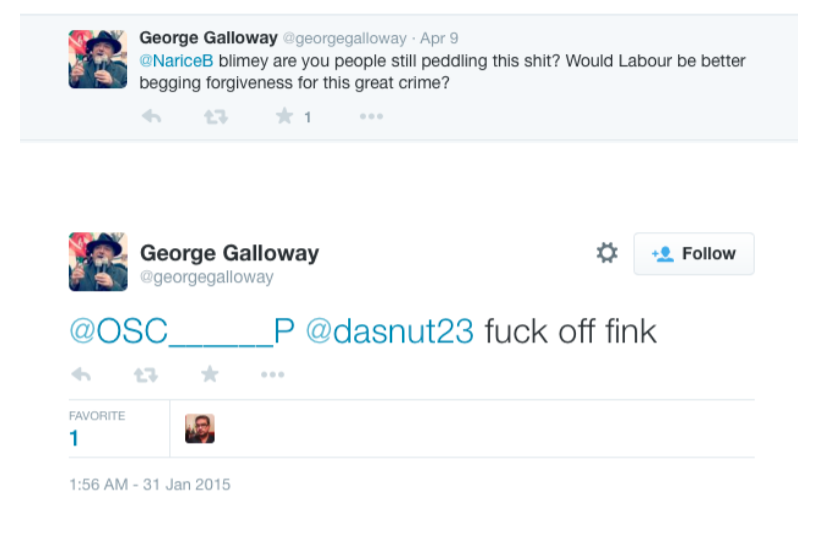
Galloway, for instance, appears to use bad language to contrast himself with his mainstream opponents.
Sometimes, it's personal – as when Fabricant talks about John Bercow, the Speaker of the Commons.
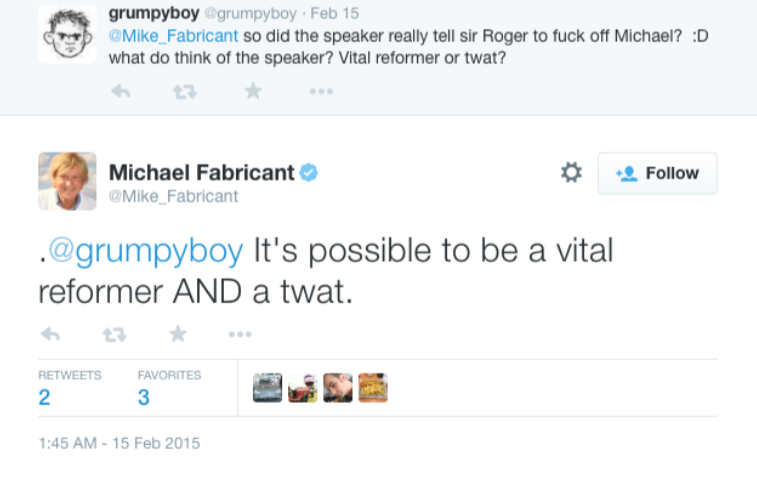
Sometimes, candidates use bad language to appear tough, or drive home a point.
For example, one Lib Dem PPC said of ISIS: "No I'd love to round the fuckers up in one room and bomb them. I don't agree with going back into Iraq". He has since deleted his account.
Sometimes, politicians simply lose their temper.
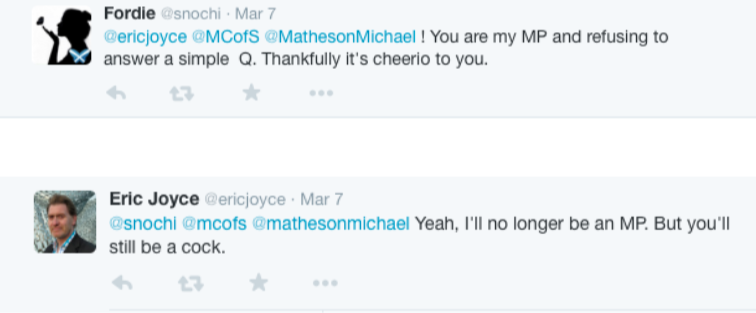
And sometimes, as with this UKIP candidate, you just have to stand back and applaud.
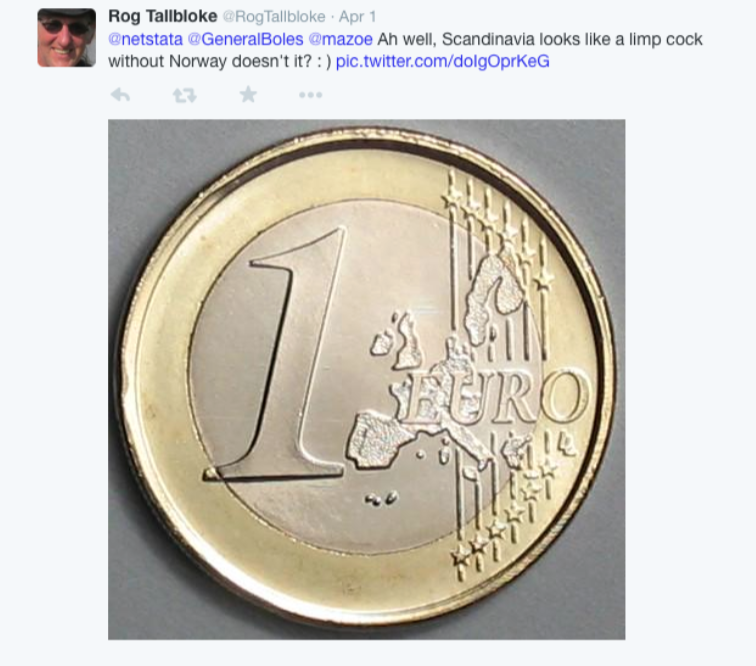
Forget the choreographed campaign appearances and carefully scripted soundbites, Twitter can show us politics at its rawest, and politicians at their most honest. And that's a good thing, for us – and for politicians.
Carl Miller is research director of the Centre for the Analysis of Social Media, which is based at Demos.

